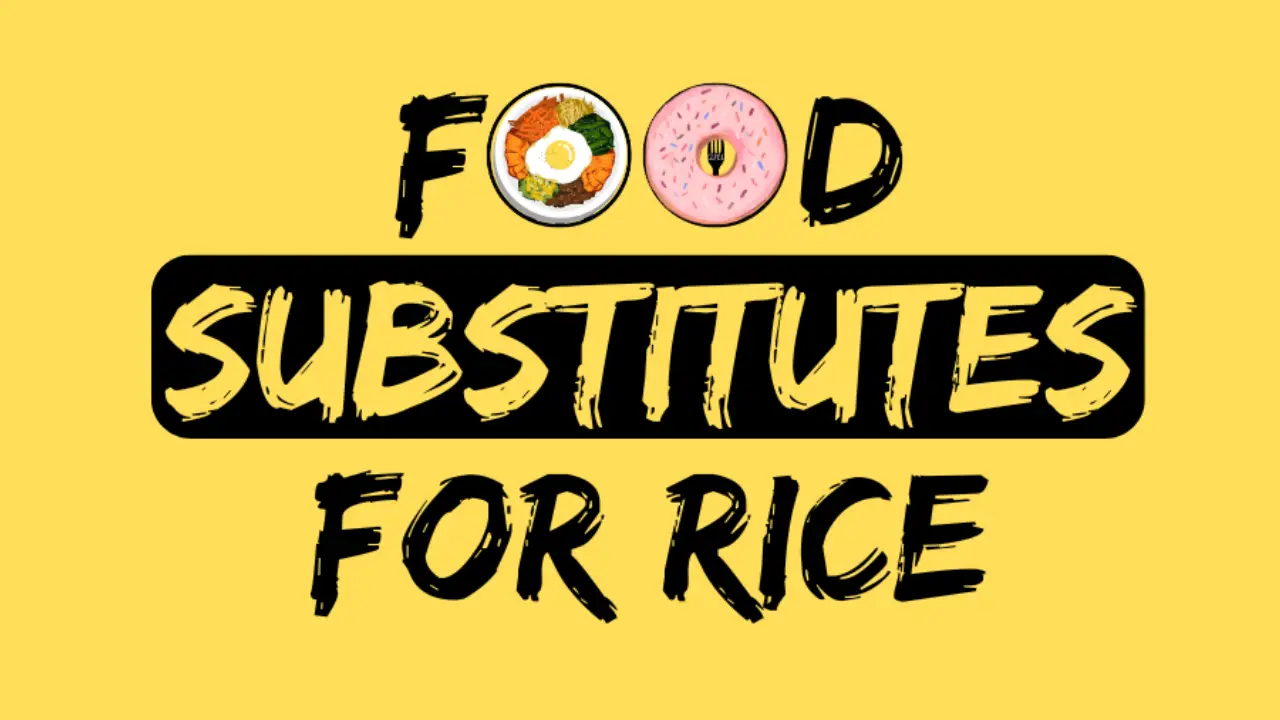Why I stopped intermittent fasting
In recent years, intermittent fasting has taken the health and wellness world by storm. Fitness enthusiasts, nutrition seekers, and those new to the world of fitness have all been drawn to its promises of weight loss, increased energy, and improved health markers. But what happens when the practice that seems perfect on paper doesn’t align with personal needs and well-being? Join me as I explore why I stopped intermittent fasting and how it led to a more balanced approach to health. This is the best blog about “Why I stopped intermittent fasting“
Read More. Dog Bladder Infection Symptoms
Understanding the Basics of Intermittent Fasting

Before we dive into the reasons for stepping away from intermittent fasting, it’s crucial to understand what it entails. Intermittent fasting is not a diet but an eating pattern that cycles between periods of fasting and eating. This method doesn’t dictate what you eat but rather when you eat.
The most common approach is the 16/8 method, where you fast for 16 hours and eat during an 8-hour window. Other variations include the 5:2 diet (eating normally for five days and restricting calories for two) and alternate-day fasting. Each method has its proponents, and many people praise the flexibility and benefits they experience.
Despite its popularity, intermittent fasting isn’t a one-size-fits-all solution. While some thrive under its structure, others, like myself, discovered that it wasn’t the key to optimal health and happiness.
My Intermittent Fasting Journey
I embarked on my intermittent fasting adventure full of hope and excitement. The concept was appealing; after all, it promised simplicity. Eating less often meant fewer meals to plan and prepare, and I envisioned a life of efficiency and newfound energy.
Initially, the results were promising. I experienced some weight loss and a sense of discipline that felt empowering. However, it didn’t take long for cracks to appear in the seemingly perfect facade of intermittent fasting. My personal experience revealed challenges that ultimately led me to reassess and abandon the practice.
The Impact on Physical Health
One of the primary motivations for trying intermittent fasting was the potential health benefits. Many advocates, including Dr. Jason Fung, highlight benefits such as improved metabolic health, reduced inflammation, and enhanced brain function. But my experience didn’t quite match these glowing endorsements.
Over time, I noticed a decline in my physical health. My energy levels fluctuated wildly, leaving me exhausted and irritable during fasting periods. Workouts became increasingly difficult, and I struggled to maintain the intensity and performance I once enjoyed. It became clear that my body wasn’t thriving under this eating schedule.
Dr. Michael Greger, a well-respected nutrition expert, often emphasizes the importance of nutrient timing and balance. In my case, the rigid fasting windows interfered with my ability to nourish my body adequately, resulting in nutritional imbalances and compromised well-being.
Mental and Emotional Challenges
Intermittent fasting is often touted for its mental benefits, with claims of increased focus and mental clarity. However, my experience was quite the opposite. The constant clock-watching and preoccupation with meal times created a sense of anxiety and stress around food.
Abbey Sharp, a registered dietitian and nutritionist, has spoken about the potential psychological challenges of restrictive eating patterns. My experience mirrored her insights, as I found myself obsessing over the clock and feeling guilty if I deviated from the fasting schedule.
The impact on my social life was another unexpected consequence. Social gatherings often revolved around food, and I frequently found myself sitting out of meals or making excuses to avoid awkward conversations. The mental strain and isolation were taking a toll on my overall happiness.
Sleep Disruptions and Recovery
Quality sleep is a pillar of good health, and intermittent fasting inadvertently disrupted my sleep patterns. Late-night fasting often left me hungry and restless, making it challenging to fall asleep and stay asleep.
Leanne Vogel, a nutrition educator and author, has discussed the importance of balancing fasting with personal lifestyle and recovery needs. In my case, the lack of proper nourishment before bedtime affected my body’s ability to repair and recover during the night, leaving me feeling drained and fatigued the next day.
Listening to My Body’s Needs
Perhaps the most significant lesson I learned from my intermittent fasting experience was the importance of listening to my body. While some individuals thrive on structured eating schedules, my body was signaling that it needed a different approach.
Dr. Jason Fung, a leading advocate of intermittent fasting, acknowledges that individual responses can vary greatly. It became evident that my unique physiological and lifestyle needs required a more flexible and personalized approach to nutrition.
Transitioning to a Balanced Eating Schedule
With the decision to stop intermittent fasting, I embarked on a new path toward a balanced eating schedule that prioritized nourishment and well-being. This transition involved several key steps and a shift in perspective.
First, I reintroduced regular meals spaced throughout the day, focusing on nutrient-dense foods that provided sustained energy. I embraced the idea of intuitive eating, allowing my body to guide me toward hunger and satiety cues.
Second, I prioritized nutrient timing, incorporating a mix of macronutrients in each meal to support stable blood sugar levels and overall health. This approach aligned with Dr. Michael Greger’s emphasis on balanced nutrition for optimal well-being.
The Positive Outcomes of Change
The shift away from intermittent fasting brought about significant positive changes in my life. Physically, I regained my energy and vitality, enabling me to fully engage in workouts and daily activities. My mental clarity improved, and the anxiety surrounding food dissipated.
Socially, I reconnected with friends and family over shared meals, relishing in the joy of community and connection. The newfound freedom in my eating schedule allowed me to savor both the culinary and social aspects of food.
Emotionally, I experienced a sense of empowerment and self-acceptance. Letting go of the rigid fasting rules allowed me to trust my body’s signals and make choices that aligned with my values and goals.
Expert Insights and Advice
To provide a well-rounded perspective, it’s essential to consider the insights of experts in the field of nutrition and health. Dr. Jason Fung, a prominent advocate of intermittent fasting, acknowledges that while fasting can be beneficial for some, individual responses vary. He emphasizes the importance of listening to one’s body and making informed decisions based on personal needs.
Similarly, Abbey Sharp and Leanne Vogel offer valuable advice for those considering or practicing intermittent fasting. They stress the importance of flexibility, balance, and self-compassion, encouraging individuals to find an approach that aligns with their unique circumstances.
FAQs About Intermittent Fasting

How does intermittent fasting affect metabolism?
Intermittent fasting (IF) has become a popular approach for managing weight and enhancing metabolic health. Here’s a detailed exploration of its effects on metabolism, focusing on insulin sensitivity, fat utilization, and individual variability.
Metabolic Effects of Intermittent Fasting
- Insulin Sensitivity: Intermittent fasting can lead to improved insulin sensitivity, meaning the body uses glucose more efficiently. During fasting periods, insulin levels decrease, allowing the body to better access stored energy in the form of fat. Enhanced insulin sensitivity can lower the risk of insulin resistance and type 2 diabetes, contributing to overall metabolic health.
- Fat Utilization: One of the key metabolic shifts during intermittent fasting is the increased utilization of fat as an energy source. As the body’s glucose reserves deplete, it begins to burn stored fat, a process known as fat oxidation. This metabolic switch not only aids in weight loss but also supports the maintenance of lean muscle mass, which is crucial for a healthy metabolism.
Individual Variability
While many people experience positive metabolic changes with intermittent fasting, individual responses can vary significantly. Factors influencing these differences include:
- Genetics: Genetic makeup can affect how one’s body responds to fasting, impacting the rate and extent of metabolic changes.
- Age and Gender: Metabolic rates and hormonal balances are influenced by age and gender, which can alter the effectiveness of intermittent fasting.
- Lifestyle and Health Status: Current lifestyle choices, including diet, physical activity, and existing health conditions, can also affect how one responds to intermittent fasting.
Evaluating Impacts in Personal Health Context
Due to the variability in responses, it’s crucial to evaluate the effects of intermittent fasting within the context of individual health goals. Consulting with healthcare professionals can help tailor fasting regimens to align with personal needs and ensure safety.
Influence on Overall Health and Weight Management
By improving insulin sensitivity and enhancing fat utilization, intermittent fasting can contribute to better weight management and reduce the risk of metabolic diseases. However, it’s important to maintain a balanced approach, incorporating nutritious meals and regular physical activity to support long-term health.
Is intermittent fasting suitable for everyone?
Intermittent fasting (IF) has garnered attention for its potential benefits in weight management and metabolic health. However, it’s essential to recognize that this approach is not universally suitable for everyone, and several factors should be considered before embarking on any fasting regimen.
Suitability of Intermittent Fasting
- Medical Conditions: Certain medical conditions can make intermittent fasting an unsuitable choice. Individuals with diabetes, especially those on medication or insulin, need to carefully monitor their blood sugar levels, making fasting potentially risky. Those with a history of eating disorders may find that fasting exacerbates unhealthy eating patterns and should approach it with caution.
- Nutritional Needs: Specific life stages and situations, such as pregnancy, breastfeeding, childhood, and adolescence, have unique nutritional requirements that intermittent fasting might not adequately support. During these times, consistent nutrient intake is crucial for growth and development.
- Lifestyle Preferences: The structure and demands of personal and professional life can influence the feasibility of intermittent fasting. For individuals with high-energy jobs or those who engage in rigorous physical activities, fasting might lead to decreased energy levels and performance.
- Individual Goals and Preferences: Intermittent fasting should align with personal health goals and dietary preferences. Some people may find fasting an effective tool for weight management, while others might prefer more conventional eating patterns that fit their lifestyle and promote well-being.
Importance of Professional Consultation
Given the variability in individual responses and needs, consulting with a healthcare professional before starting intermittent fasting is vital. Professionals can provide personalized advice, helping to determine if fasting is appropriate and how to implement it safely. They can also recommend modifications or alternative approaches that better suit individual health profiles and goals.
In summary, while intermittent fasting offers potential health benefits, its suitability depends on a variety of personal factors, including medical history, nutritional needs, lifestyle, and personal preferences. A healthcare professional’s guidance can ensure that any fasting regimen is safe and tailored to individual needs, optimizing health outcomes and supporting long-term well-being.
What are some alternatives to intermittent fasting for weight management?
When considering alternatives to intermittent fasting for weight management, it’s important to explore approaches that promote long-term health while fitting individual lifestyles. Here are some effective strategies:
Balanced Eating Schedules
Consistency and Variety: A balanced eating schedule involves consuming meals at regular intervals throughout the day to maintain energy and nutrient levels. This approach helps stabilize blood sugar levels, preventing the spikes and crashes that can lead to overeating.
Nutrient Diversity: Ensure each meal includes a variety of macronutrients—proteins, carbohydrates, and fats—alongside essential vitamins and minerals. This diversity supports metabolic health and keeps you feeling full and satisfied.
Practical Tip: Plan your meals and snacks ahead of time to prevent impulsive eating. Using meal prep techniques can help maintain a balanced diet effortlessly.
Mindful Eating Practices
Awareness and Intuition: Mindful eating encourages paying full attention to the eating experience, promoting awareness of hunger cues and satiety signals. This practice helps prevent overeating by aligning consumption with actual hunger rather than emotional or situational triggers.
Enjoyment and Satisfaction: Focus on the sensory aspects of eating—the taste, texture, and aroma of food—which can enhance satisfaction and reduce the need for large portions.
Practical Tip: Before eating, take a moment to assess your hunger level. Eat slowly and without distractions to better connect with your body’s signals.
Personalized Nutrition Plans
Tailored to Individual Needs: Personalized nutrition involves creating a diet plan based on individual health goals, dietary preferences, and nutritional requirements. This ensures that dietary changes are sustainable and enjoyable.
Health and Well-Being: These plans prioritize nutrient-dense foods, promoting overall health and reducing the risk of chronic diseases. They are adaptable to various lifestyles and can be adjusted as needs change.
Practical Tip: Work with a nutritionist or dietitian to develop a personalized plan that aligns with your goals and preferences. Regularly review and adjust the plan to accommodate any changes in your lifestyle or health status.
Benefits Compared to Intermittent Fasting
- Flexibility and Sustainability: Unlike the rigid timing of intermittent fasting, these approaches allow for more flexibility, making them easier to maintain long-term.
- Holistic Health Focus: They emphasize overall well-being, ensuring that all nutritional needs are met without the potential stress or discomfort associated with fasting.
- Adaptability: These strategies can be seamlessly integrated into diverse lifestyle patterns, offering a more personalized path to weight management.
Conclusion
In the world of health and nutrition, there’s no shortage of trends and diets promising remarkable results. Intermittent fasting, while effective for some, is not without its challenges and limitations. My decision to stop intermittent fasting was a result of listening to my body’s signals and prioritizing overall well-being.
Ultimately, the key to a sustainable and fulfilling health journey lies in finding an approach that aligns with individual needs and values. Whether through intermittent fasting or another method, the goal is to nurture a positive relationship with food, support physical and mental health, and cultivate a sense of balance and joy.
If you’re considering intermittent fasting or currently practicing it, take the time to evaluate your unique circumstances and listen to your body’s cues. And remember, the path to health is a personal one, guided by informed choices and a commitment to well-being.









